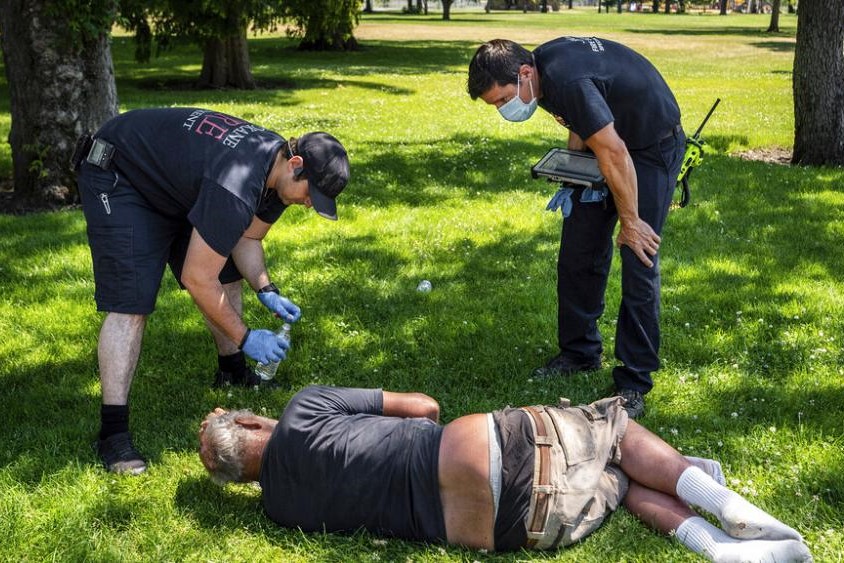
Introduction to Advanced First Aid Training
The added knowledge in lifesaving and how to respond to various emergencies are some of the great benefits of taking advanced first aid training
Knowing another level of first aid is certainly useful during emergencies at home, in the workplace, and the community.
TRAINING: VISIT THE BOOTH OF DMC DINAS MEDICAL CONSULTANTS IN EMERGENCY EXPO
What is Advanced First Aid?
Advanced first aid is a combination of training, knowledge, techniques, and practices to administer immediate care for a person in an emergency, whether an illness or an injury.
While basic first aid has the same purpose, advanced first aid is a higher level of training that uses more specialised equipment.
In some instances, this practice is used on casualties to prevent further complications until medical help can take over.
Any delay in treatment will most certainly result in long-term consequences or, worse, death if no advanced care is applied.
An advanced course in first aid will incorporate all basic skills and techniques that you learn in basic first aid but in a more elaborate way.
These include topics on airway and breathing management, addressing circulation problems, and restoring life functions to avoid critical injuries.
Another key tool of this course is the advanced cardiopulmonary resuscitation (CPR), which is used for casualties who suffered from cardiac or respiratory arrest.
Performing this procedure in a more detailed way is a good attempt to try and revive the victim.
What is the Difference Between Basic and Advanced First Aid courses?
One key difference between basic and advanced first aid courses is the introductory topics on additional pieces of medical equipment.
It is often an occupational requirement for workplace first aid officers and others who work in the healthcare field to take an advanced course.
The instructor will conduct real-life practice in class, teaching them how to use more sophisticated techniques and tools.
An advanced course may involve the use of bag valve masks and the introduction of additional pieces of equipment.
Learning the proper usage of this equipment before the arrival of the ambulance could mean the difference between life and death.
Additionally, advanced certification courses are often sought by businesses and organisations working remotely where medical help may take significant time to arrive.
Who Needs Advanced First Aid Training?
The advanced training course is designed for non-EMS responders, including people in these professions.
- Government worker
- Corporate employees
- Law enforcement
- Prison and correctional officer
- Lifeguards and pool attendant
- Security personnel
The advanced course has also been made available to people who are not in EMS or the healthcare field but have a desire or require certification on this level.
For people who already have their basic first aid training, the advanced course will enhance what you have already learned.
THE RADIO OF THE WORLD’S RESCUERS? VISIT THE RADIO EMS BOOTH AT EMERGENCY EXPO
Read Also:
Emergency Live Even More…Live: Download The New Free App Of Your Newspaper For IOS And Android
Drowning Resuscitation For Surfers
First Aid: When And How To Perform The Heimlich Maneuver / VIDEO
First Aid, The Five Fears Of CPR Response
Perform First Aid On A Toddler: What Differences With The Adult?
Heimlich Maneuver: Find Out What It Is And How To Do It
Chest Trauma: Clinical Aspects, Therapy, Airway And Ventilatory Assistance
Internal Haemorrhage: Definition, Causes, Symptoms, Diagnosis, Severity, Treatment
Cervical Collar In Trauma Patients In Emergency Medicine: When To Use It, Why It Is Important
KED Extrication Device For Trauma Extraction: What It Is And How To Use It
How Is Triage Carried Out In The Emergency Department? The START And CESIRA Methods
ERC 2018 – Nefeli Saves Lives In Greece
First Aid In Drowning Children, New Intervention Modality Suggestion
Water Rescue Dogs: How Are They Trained?
Drowning Prevention And Water Rescue: The Rip Current
RLSS UK Deploys Innovative Technologies And The Use Of Drones To Support Water Rescues / VIDEO
First Aid: Initial And Hospital Treatment Of Drowning Victims


